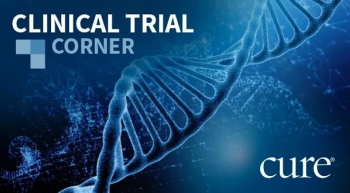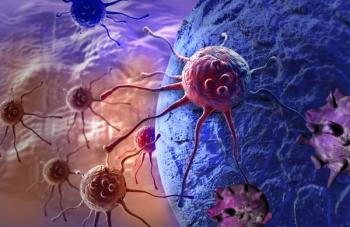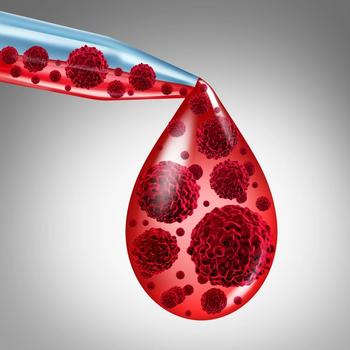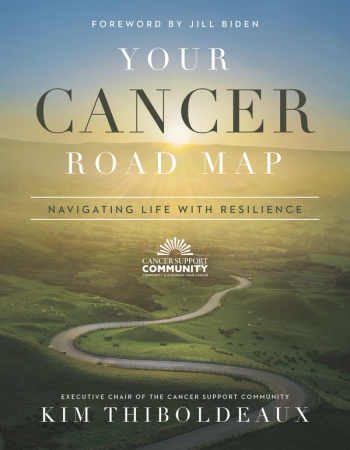
People who meet regular dietary recommendations and the minimum daily requirement for vitamin D intake may experience a protection against early-onset colon cancer, according to an expert from the Dana-Farber Cancer Institute.

Ryan McDonald, Associate Editorial Director for CURE®, has been with the team since February 2020 and has previously covered medical news across several specialties prior to joining MJH Life Sciences. He is a graduate of Temple University, where he studied journalism and minored in political science and history. He considers himself a craft beer snob and would like to open a brewery in the future. During his spare time, he can be found rooting for all major Philadelphia sports teams. Follow Ryan on Twitter @RMcDonald11 or email him at [email protected].

People who meet regular dietary recommendations and the minimum daily requirement for vitamin D intake may experience a protection against early-onset colon cancer, according to an expert from the Dana-Farber Cancer Institute.

The FDA determined that individuals with weakened immune systems — which include patients with cancer — may benefit from a third dose of Pfizer-BioNTech’s and Moderna’s COVID-19 vaccines.

The results, according to the study authors, demonstrate that screening the general population for tubal and ovarian cancer each year does not result in a survival benefit.

The FDA’s recent approval of Keytruda in combination with trastuzumab and chemotherapy in the first-line setting is an exciting change for a group of patients with certain subtypes of stomach cancer, according to an expert.

The FDA’s recent approval of Rybrevant marks the first targeted therapy for a certain group of patients with non-small cell lung cancer, according to an expert at NYU Langone Health’s Perlmutter Cancer Center.

More than nine hours of surgery to remove a rare form of bone cancer in the his hip and leg forced Colin Jackson to relearn how to do simple tasks. Months later, he crossed the finish line of a marathon.

Patients with melanoma are living longer than ever before and some, according to an expert from the Rutgers Cancer Institute of New Jersey, are even getting cured or achieving long-term remissions thanks to developments in the treatment landscape.

The FDA approval provides patients with an alternative therapy to the only other approved treatment, which has been under a global shortage for several years.

As the cancer treatment landscape continues to expand, patients and their caregivers should be aware of the various clinical trials currently being conducted — including studies they can possibly join.

On social media, CURE® recently asked its readers to share what was the most meaningful thing someone has said to them during their cancer journey. Here’s what they shared.

The vaccine significantly improved a survival outcome over standard-of-care treatment in patients with newly diagnosed glioblastoma.

The study’s lead author noted that a survival outcome, along with other results, was similar among the two groups.

Treatment with a novel combination therapy was associated with increased efficacy among patients with aggressive relapsed or refractory B-cell non-Hodgkin lymphoma and was also well tolerated.

A single infusion of a novel CAR-T cell therapy was associated with early and deep responses to treatment among a certain group of patients with multiple myeloma.

It is important to help people feel more confident as they face many decisions during their cancer journey and provide them with resources to show them that they don’t have to face the disease alone.

The Food and Drug Administration has had a busy couple of weeks, approving several agents to treat a variety of cancers. Here are five recent approvals that patients with cancer may have missed.

The Food and Drug Administration’s priority review will focus on the combination of plinabulin plus granulocyte colony-stimulating factor for the prevention of chemotherapy-induced neutropenia.

On social media, CURE® recently asked its readers to share what was the most surprising thing that changed in their life since receiving a cancer diagnosis. Here’s what they shared.

As the cancer treatment landscape continues to expand, patients and their caregivers should be aware of the various clinical trials currently being conducted — including studies they can possibly join.

On social media, CURE® recently asked its readers to share what unexpected, non-treatment-related costs they incurred during their cancer journey. Here’s what they shared.

The decision from the Food and Drug Administration marks the first approval of a targeted treatment option for adults with non-small cell lung cancer whose tumors harbor a specific genetic mutation.

The data, according to an expert, show that treatment with Tecentriq could delay disease progression to an advanced stage, as well as the need for more aggressive therapy.

Patients with cancer who scored highly on depression and anxiety tests were more likely to suffer from symptoms of chemotherapy-induced nausea, according to results of a recent study.

On social media, CURE® recently asked its readers to share how a pet helped them during their experience with cancer. Here’s what they shared.

An analysis of more than 3.5 million children born between January 1996 and December 2016 demonstrated a stronger association between Down syndrome and acute myeloid leukemia risk than has been previously reported.

The Geron Corporation announced that the first patient has been dosed with GRN163L — an experimental agent — in a phase 3 clinical trial to assess the drug’s overall survival benefit compared to best available therapy in patients with refractory myelofibrosis.

Treatment with a novel therapy as a single agent, or in combination with Venclexta, demonstrated a manageable safety profile and antileukemic effects in patients with relapsed/refractory acute myeloid leukemia. The study authors, however, note that more research is needed.

Treatment with daily Jakafi and parsaclisib improved spleen volume reduction and symptom burden in patients with myelofibrosis who had previously failed to achieve significant response to single-agent Jakafi.

On social media, CURE® recently asked its readers with rare cancers what advice they would offer to fellow patients with a similar diagnosis. Here’s what they shared.

Members of an FDA committee voted in favor of Tecentriq plus Abraxane keeping its accelerated approval for the treatment of adults with unresectable, locally advanced or metastatic triple-negative breast cancer whose tumors express PD-L1.